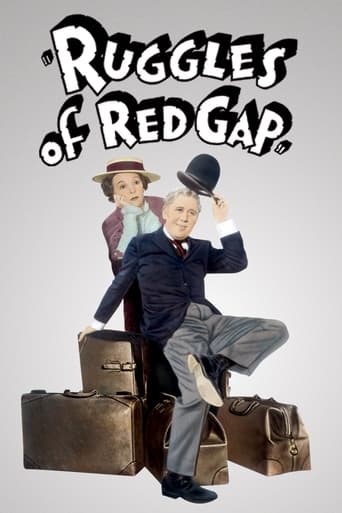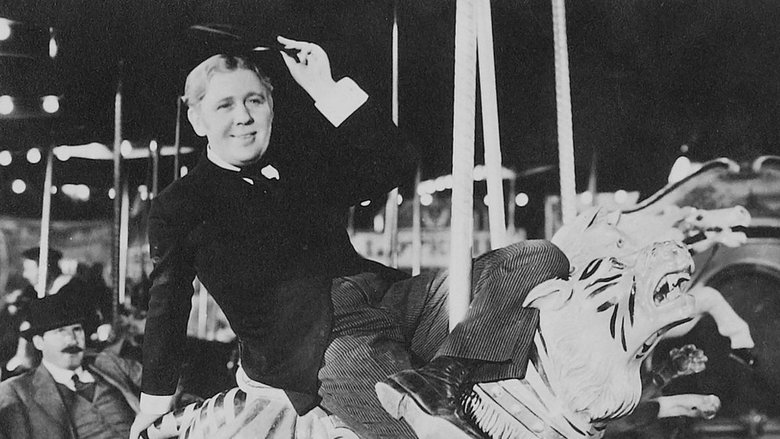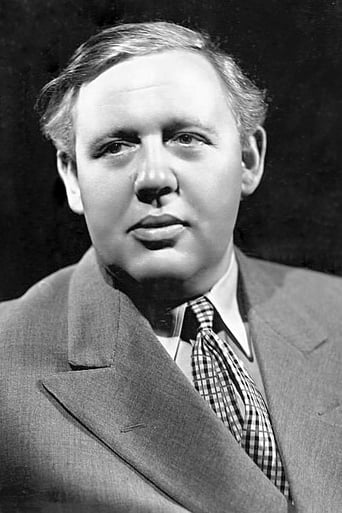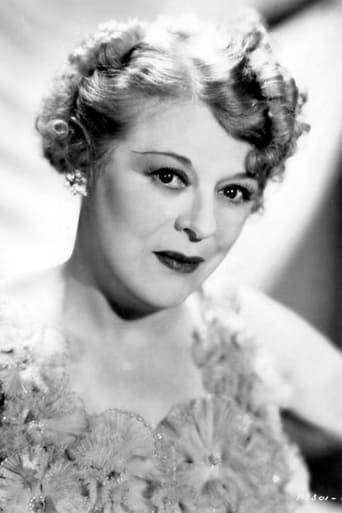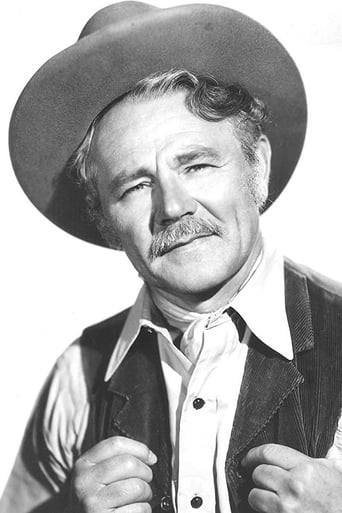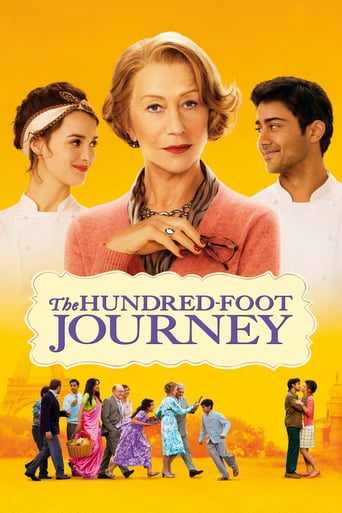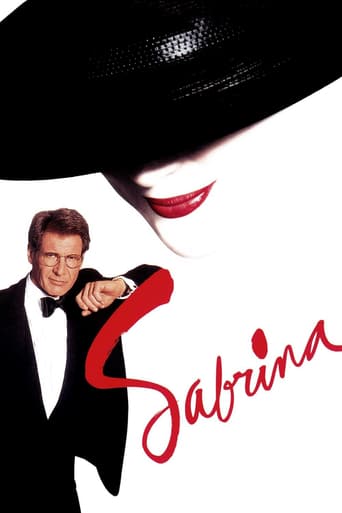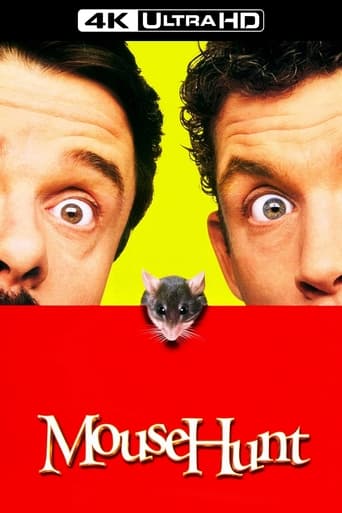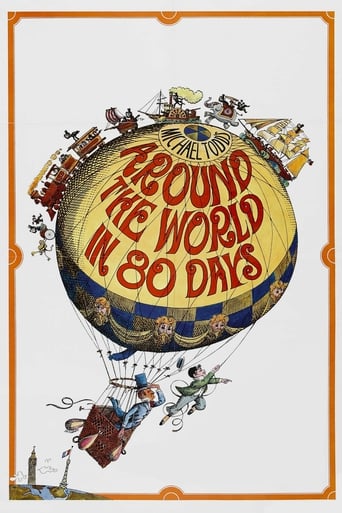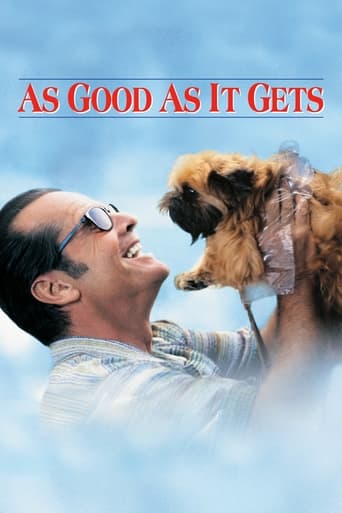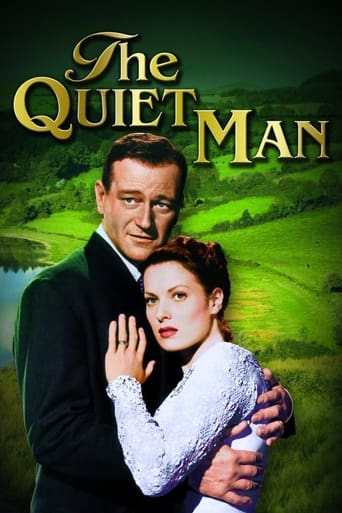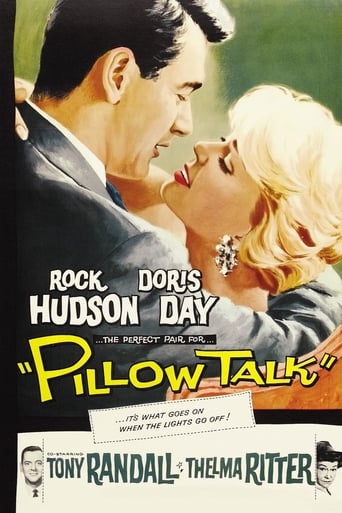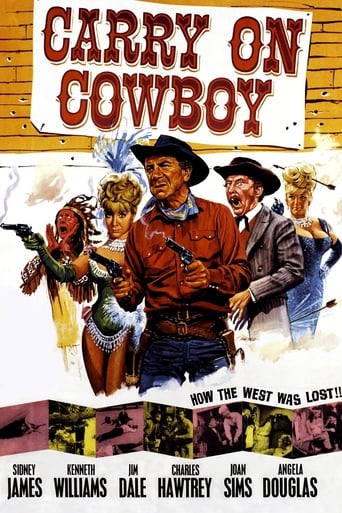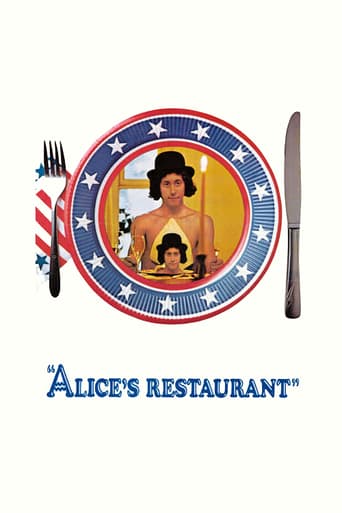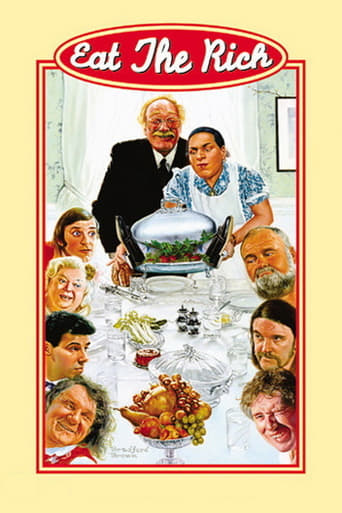Ruggles of Red Gap (1935)
In this comedy of an Englishman stranded in a sea of barbaric Americans, Marmaduke Ruggles, a gentleman's gentleman and butler to an Earl is lost in a poker game to an uncouth American cattle baron. Ruggles' life is turned upside down as he's taken to the USA, is gradually assimilated into American life, accidentally becomes a local celebrity, and falls in love along the way.
Watch Trailer
Cast


Similar titles
Reviews
A "fish out of water" 1930's comedy with Charles Laughton as an English Butler "won" in a poker game and brought to America against his will. A great supporting cast with the personas of Zazu Pits, Charles Ruggles and many others. It is set in 1908 in a "rural town" just coming out of the "frontier". No decent restaurant with "grub" at the saloon, so the displaced butler starts one. ( I am surprised that a local hotel or boarding house doesn't serve decent food?) "The Gettysburg Address" is recited as well! It reminds me of the Brit sit-com "Keeping Up Appearances" as a most "common" lady tries to put-on social "airs". Well-directed by the man who brought us "Going My Way" and other more classical tales. Most engaging with only a little "slapstick" at the very end. Made 4 times on film and the basic concept "recycled" numerous times in other movies and TV shows. Quite enjoyable, but I don't feel the need to own it.
Some pretty good reviews have been turned in so far. I recommend "All's Right With the World" (telegonus from brighton, ma; 16 August 2002). Also, jayjerry regards it as "My All-Time Favorite" (jayjerry from Burbank, CA; 2 February 2007).In "Making Your Way In A New World" (bkoganbing from Buffalo, New York; 6 October 2006) we get good background on Charles Laughton's personal interest in the story. In "For He's a Jolly Good Fellow" (lugonian from Kissimmee, Florida; 18 December 2010) we are provided the film history of the story.In "What did Lincoln say at Gettysburg, anyway?" (theowinthrop from United States; 20 May 2006) we get criticism of the pacing of some scenes, along with the gags that don't entirely work."Ruggles at Red Gap" starts out as a (not laugh-out loud) comedy about manners. As the story moves from Paris to the Western US, it acquires great depth by way of Laughton's extraordinary reciting of Abraham Lincoln's "Gettysburg Address" to a saloon filled with cowboys who can't recall a word of it.As freedom and liberation emerge as new themes, love also arrives. Laughton's Ruggles (convincing as a heterosexual) finds a widow (Zasu Pitts as Mrs. Judson) with whom a restaurant adventure is undertaken. Among the first patrons of this restaurant is his former Parisien employer (Roland Young as the Earl of Burnstead) who has found a very charming Washington socialite (Leila Hyams as Nell Kenner).Acquiring richness until the satisfying finale, "Ruggles at Red Gap" should be regarded as among the best films about Americana. Three scenes are standouts: Laughton's exceptional Gettysburgh recitation, Roland Young's musical flirting scene with Leila Hyams and the restaurant sequence climaxed by a rousing finish.Laughton's transformation from a dour and proper man servant to a more popular figure comes with the help of two instigators; i.e., wealthy ranchers Egbert (Charles Ruggels; yes that's confusing) and Effie Floud (Mary Boland). Egbert is a particularly corrupting influence on Ruggles by introducing him to drink and repeatedly insisting that they both share the same class.Each cast member is superb. Leo McCarey is very interesting visually. Note how in this cinematic period how few closeups there are; how often there seems to be a bit much space above characters heads and how far away a group stands from the viewer's perspective, as if seen from a stage.In real life in Washington State (around 1908) there probably would be more than one enemy for Ruggles to contend with; for being out of place, foppish, proper, literary and theatrical. As with many of the other films from the 1930s, common people are depicted idealistically.Somehow McCarey made this beautiful, rich and rewarding commentary about liberty, finding love and gaining acceptance before he appeared as a friendly witness to the House Committee on Un-American Activities (HUAC) witch hunt. This is not explained by "Ruggles."
Leo McCarey's "Ruggles of Red Gap" (1935) is a fantastic comedy that has an expertly conceived, slowly unfolding narrative built above all things on the strength of the whole cast.The film largely revolves around the notion of opposites: overstated in gesture, understated in gesture; extrovert, introvert; brotherly intimacy, respectful distance. Laughton and Young abide always in the latter, Charles Ruggles (playing Egbert) and the rest of the Americans inhabit the former. All of these traits of characterization are then blown out of proportion, and both the comedy and underlying humanity is activated when these two extremes are first juxtaposed and then merged into one another: Ruggles' (not Charles but Laughton's character) drunkenness, the Earl's fascination with playing drums, and then the seminal moment toward the end where he quotes Lincoln. While it is Ruggles who's whipsawed by this cultural counterpoint the most, my favourite moments still go to the Earl, beautifully understated, and to Egbert, who is kindness and well-intentioned independence embodied.But this is so much more than just stereotype-floundered, exploitative farce. There's great humanity all around, and this balance is able to produce strong emotional responsiveness and identification either way – be it Egbert meeting his friend on the street in Europe, or Ruggles or the Earl refusing to open their social space. The characters are revealed as human and humane. Perhaps the payoff in the end rubs it a bit too much on my nose, but on the other and it's completely justified in the context of the film.
RUGGLES AT RED GAP is an example of a film that was far better when it came out than it is today. I realize, as I say this, that most of the comments on this thread are positive ones - that they emphasize the better points of the cast and scenes of the film, and of Leo McCarey's directing abilities, but the film is a bit too mild for today's taste.McCarey was capable of doing very funny film comedies like THE AWFUL TRUTH, and homey quasi-religious films like GOING MY WAY and THE BELLS OF ST. MARY, and romantic classics like LOVE AFFAIR and AN AFFAIR TO REMEMBER, and he did one of the best films ever made about the tragedy of growing old, MAKE WAY FOR TOMORROW. But he could make movies, or films that were not as lasting in public appeal. For example, his extreme Catholicism made him as big a foe of Communism as Cecil B. DeMille. He did that abysmal film MY SON JOHN (Robert Walker Sr.'s last film) about a young man who becomes a Communist Russian agent.RUGGLES OF RED GAP is not as bad a misfire as MY SON JOHN. First of all it does have a funny set of problems in it's story. Set in the year 1900 or so, the movie is about Egbert and Effie Floud of Red Gap, Washington State (Charlie Ruggles and Mary Boland). Floud is a wealthy rancher, and his wife is trying to polish him up by taking him on a modern grand tour of Europe. But Egbert is very down-to-earth, and keeps up a continuous quiet rear guard action against his wife's pretensions. She keeps burning his loud, checkered suits. He keeps finding ways of replacing the "monkey" suits (tales) that she gets him. He never really picks up on the cultural advantages that she pushes (he really dislikes them). One thing that Floud does pick up is Marmaduke Ruggles (Charles Laughton), a butler and valet to George, Earl of Burnwell (Roland Young). Floud wins Ruggles in a high stake poker game with the Earl. Floud is a good democratic type, and refuses to call the timid but competent butler Ruggles. Instead he keeps calling him Bill. He also introduces Ruggles to the pleasures of getting drunk, much to the disappointment of Effie.Effie's snobbery (which is undercut by her ineptitude in pronouncing French) is encouraged by her brother in law Charles Belknap - Jackson (Lucien Littlefield). A total snob, he looks down at the decent Egbert (who is footing the bills for his own family and Belknap - Jackson's) and he considers that Ruggles is a step in the right direction, as long as Ruggles knows his place.The Flouds and their party return to Red Gap, and Ruggles slowly finds that he really fits into the community. Particularly when he meets Prunella Judson (Zazu Pitts), whom he finds himself falling in love with. Back on their home turf Effie (still manipulated by Belknap - Jackson) keeps trying to raise the community's social standards. But even Effie, back at home, eases a bit. Her neighbors like her, but they can tune out her pretensions, If any scene is recalled from RUGGLES it is when Egbert, his neighbor Ma Pettingill (Maude Eburne) and his friend Jeff Tuttle (James Burke) are drinking beer in the local saloon with Ruggles, and discuss President Lincoln and his appearance at the dedication of the Gettysburg Cemetery in November 1863. It turns out none of them recall Lincoln's Gettysburg Address - except Ruggles. Speaking softly but with increased emphasis, Laughton recites the complete four minute speech, and gave one of most memorable moments in movies (and in his own career) to the public. His recitation of the speech is the culmination of his adherence to the democratic ideals that he has hitherto feared, but now welcomes.The conclusion of the film is a party attended by the entire community that both Marmaduke and Prunella throw at their new restaurant. And it culminates in Marmaduke reacting violently (if politely) to Belknap - Jackson who has been sneering at the democratic riffraff. Firmly grasping the snob by his jacket he pushes him out of the restaurant.The film is appealing in it's adherence of the leveling and freeing aspects of American democracy, and so it deserves an "8" out of "10". But it is not as great a film as that ranking would seem to suggest. There are long stretches of the film that drag. Some of the humor is a trifle more slapdash (particularly Ruggles' reaction to alcohol) than one would appreciate. McCarey had been trained in silent comedy, particularly with Laurel & Hardy, but he could fall flat occasionally.There is also a problem about his villain. Littlefield does well as Belknap - Jackson, but we never understand the reason for his outrageous snobbery. It might have helped to understand this character's reasons.Still hearing Laughton recite Lincoln is a great treat, as is his interactions with Charlie Ruggles and Mary Boland and Roland Young. It is certainly a film to watch once or twice, but beyond that I can't really feel that you would gain much more pleasure from viewing it.

